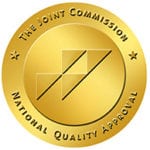
Recovery From Dual-Diagnosis
D’Amore Healthcare™ is ready to show you a new way of living. Our well-trained and kind-hearted staff is on call and ready to help you 24 hours a day, year-round, to get you started on a personalized treatment plan. They will create an individualized care plan with the necessary therapeutic modalities to ensure your mental wellness. We believe you are worth it, so call us anytime!
D’Amore Healthcare™ is a dual diagnosis, mental health treatment center for adult men and women specializing in the intervention, acute stabilization, and residential treatment of addiction and mental health disorders. Our mental health facility is located in sunny Orange County, California.




























